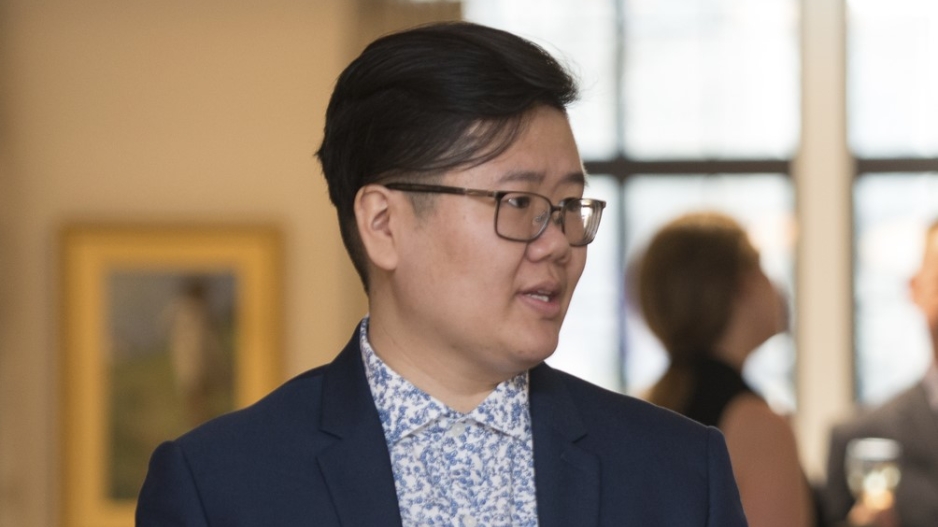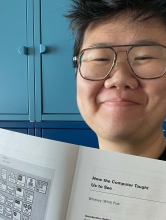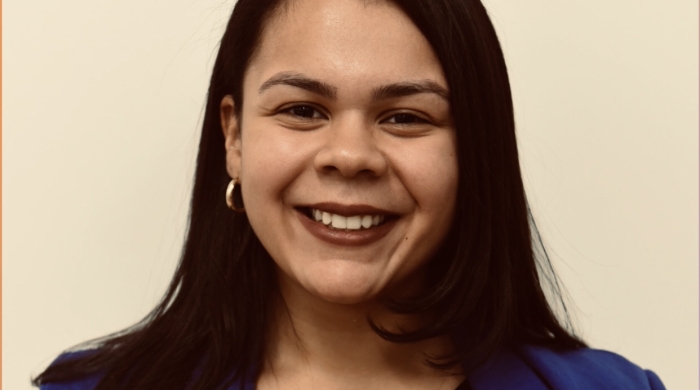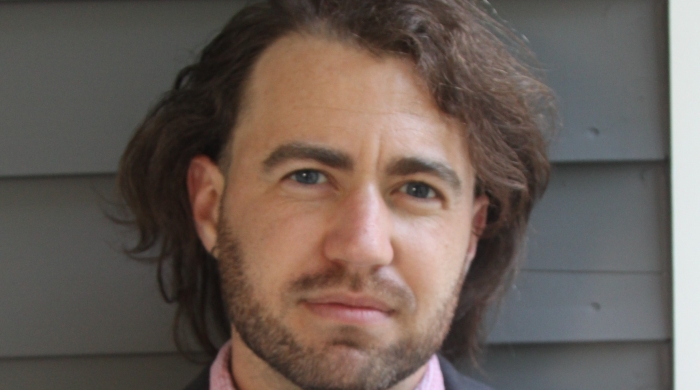Whitney Pow, an assistant professor of queer and transgender media studies, is a scholar, historian, and game designer whose research focuses on queer and trans histories of video games, software, and computational media. Pow’s work has been published in Journal of Cinema and Media Studies, ROMchip: A Journal of Game Histories, and The Velvet Light Trap. Their most recent interactive art piece, Digital TV Breakfast, was exhibited at Ars Electronica as a part of the art exhibition Chicago New Media 1972-1992. We interviewed them about their scholarship and art.
My research traces the legacies of trans people who have been foundational to early game design and development."

You study video games, gender, and sexuality. As a scholar, what questions at the intersection of these areas intrigue you?
Queer and trans people have always been a part of histories of games and computational media. In fact, queer trans people and trans people of color created some of the first synchronous online networked games, home computers and video game consoles, text parsers and interactive fiction engines, and digital glitch art. My research traces the legacies of trans people who have been foundational in early game design and development, whose imaginings of alternative modes of embodiment and interaction in relationship to computers have affected the course of history and the way we interact with video games today.
A few questions that drive my research include: How does centering queer and trans life at the heart of video game history shape the way we understand and study computational media? And how can we re-think the field of trans media studies by centering a trans history of acts, orientations, and alternative positions of the body in relationship to computers, video games, and hardware interfaces?
What are you working on now?
I’m currently revising an article that will be published this year, titled “A Trans Historiography of Glitches and Errors,” which is about game programmer Jamie Faye Fenton. Fenton created the first-ever piece of digital video glitch art using the Bally Astrocade, a home computer and video game console she designed. In this article, I locate the “glitch” as an historically trans mode of media production, and look at the way that the software glitch defies the binaries of computer errors and logics. I’m also working on my book, People Orientations, which revolves around Danielle Bunten Berry, Fenton, and Cathryn Mataga, three queer trans women who changed the course of the history of video game and software development. The book asks us to re-conceive the way we write histories of games and computing and incorporate the understanding that queer and trans people have always been a part of the past, present, and future of video games and computational media.
Whitney Pow's Digital TV Breakfast was commissioned for the Chicago New Media 1972-1992 exhibit. It is a response to game designer's Jamie Faye Fenton's 1978 glitch art piece titled, Digital TV Dinner.
How has the pandemic shaped your scholarship?
The last physical archive I was able to visit before quarantine was The Phil Morton Memorial Research Archive at the School of the Art Institute of Chicago, which was curated by professor and glitch artist Jon Cates. During my visits, I spent time digitizing sets of analog Sony U-matic videocassette tapes in a tiny room with a computer and dubbing equipment, and I had the opportunity to create live analog video art using SAIC’s Sandin Image Processor with glitch artist and teacher James Connoly. Not too long before, I met with Jamie Faye Fenton in person, when she came to a gallery exhibit of Chicago New Media 1972-1992, where my digital video game piece, Digital TV Breakfast (2018) was on exhibit. Being in small, dark rooms, and meeting with people in person seems strangely impossible to do now, and I hope to return to Chicago in the near future to continue my research.
Related Articles
Making Media Accessible to the Deaf and Hard of Hearing: an Interview with Destiny Lopez
In award-winning research, master's candidate Destiny Lopez proposes ways to make media accessible to the deaf and hard of hearing.
Studying Queer and Transgender Lives: An Interview with New Faculty Member Cassius Adair
Cassius Adair, a visiting assistant professor in the Department of Media, Culture, and Communication, is an independent audio producer, writer, and researcher. We asked him about his scholarship on queer and transgender lives.



